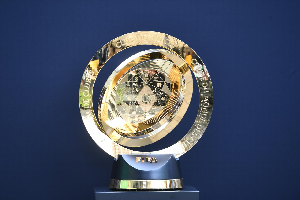Despite their elimination from the inaugural expanded FIFA Club World Cup, African powerhouses Al Ahly (Egypt), Wydad Casablanca (Morocco), and Esperance (Tunisia), alongside Mamelodi Sundowns (South Africa), secured significant financial returns from their participation in the tournament.
Each of the four African representatives received a base participation fee of $9.55 million.
Beyond this, clubs had the opportunity to earn additional prize money based on their performance, with wins garnering $2 million and draws $1 million in the group stage.
The total prize money for the tournament reached an astounding $1 billion, with $525 million allocated for participation and $475 million for performance-based rewards.
The eventual tournament winner is set to receive a massive $40 million, on top of accumulated performance bonuses and their participation fee.
The African contingent, comprising Mamelodi Sundowns, Al Ahly, Wydad Casablanca, and Esperance, had a challenging run on the field, collectively registering 2 wins, 2 draws, and 7 losses across 12 matches.
However, the invaluable experience of competing against top global clubs remains a significant gain.
Mamelodi Sundowns emerged as the highest-earning African team, pocketing approximately $12.55 million. Their notable performances included a win against Ulsan Hyundai and a goalless draw with Fluminense, alongside a 4-3 loss to Borussia Dortmund.
Al Ahly and Esperance each earned around $11.55 million. Al Ahly, despite not securing a win, achieved two draws, including a thrilling 4-4 encounter with FC Porto.
Esperance recorded a 1-0 victory over LAFC but faced defeats against Chelsea (0-3) and Flamengo (0-2). Wydad Casablanca earned $9.55 million, having been in a challenging group with Manchester City and Juventus and not registering a win (0-2 loss vs Man City, 1-4 loss vs Juventus, 1-2 loss vs Al Ain).
The FIFA Club World Cup’s new financial structure guarantees a substantial base participation fee for all teams, complemented by performance-based incentives.
While African teams faced formidable competition from European and South American giants, their involvement in the expanded FIFA Club World Cup marks a positive stride forward.
The increased exposure, invaluable experience, and significant financial rewards are expected to foster continued growth and enhance the international competitiveness of these clubs.
The tournament’s overall success and the crucial lessons learned by participating teams point towards a promising future for African club football on the global stage.
PM/VPO
GhanaWeb Special: The gold market that fuels galamsey
How social engineering hacks your mind and your bank account



